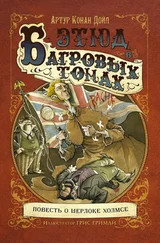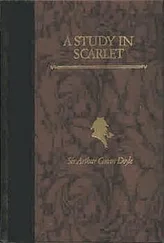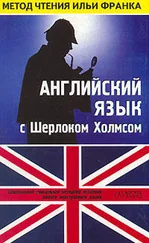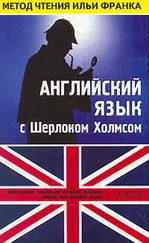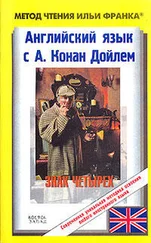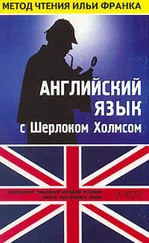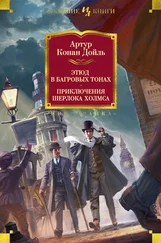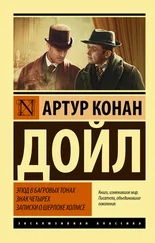falter ['fO:lt@], reward [rI'wO:d], vagrant ['veIgr(@)nt], jealousy ['dZel@sI]
Many a man, however vindictive, would have abandoned all thought of revenge in the face of such a difficulty, but Jefferson Hope never faltered for a moment. With the small competence he possessed, eked out by such employment as he could pick up, he travelled from town to town through the United States in quest of his enemies. Year passed into year, his black hair turned grizzled, but still he wandered on, a human bloodhound, with his mind wholly set upon the one object upon which he had devoted his life. At last his perseverance was rewarded. It was but a glance of a face in a window, but that one glance told him that Cleveland in Ohio possessed the men whom he was in pursuit of. He returned to his miserable lodgings with his plan of vengeance all arranged. It chanced, however, that Drebber, looking from his window, had recognized the vagrant in the street, and had read murder in his eyes. He hurried before a justice of the peace, accompanied by Stangerson, who had become his private secretary, and represented to him that they were in danger of their lives from the jealousy and hatred of an old rival. That evening Jefferson Hope was taken into custody, and not being able to find sureties, was detained for some weeks. When at last he was liberated, it was only to find that Drebber's house was deserted, and that he and his secretary had departed for Europe.
Again the avenger had been foiled (снова мститель потерял след; to foil — сбивать собаку со следа; to avenge — мстить) , and again his concentrated hatred urged him to continue the pursuit (и снова его ненависть: «концентрированная ненависть» заставила его продолжать погоню; to urge — заставлять, побуждать) . Funds were wanting, however (однако его средства были ограничены; funds — денежные средства, деньги; to want — испытывать недостаток, нехватку) , and for some time he had to return to work (и на какое-то время он был вынужден работать: «вернуться на работу») , saving every dollar for his approaching journey (сберегая каждый доллар для предстоящего путешествия) . At last, having collected enough to keep life in him (наконец, накопив достаточно, чтобы не умереть с голоду: «удержать в нем жизнь») , he departed for Europe, and tracked his enemies from city to city (он отправился в Европу, преследуя своих врагов из города в город; to track — выслеживать; track — след) , working his way in any menial capacity (не гнушаясь никакой работой, чтобы заработать себе на жизнь: «зарабатывая себе на дорогу любой грязной работой»; menial — подобающий слугам; занимающийся неквалифицированным трудом, особенно по дому; capacity — роль, качество) , but never overtaking the fugitives (но ни разу не нагнав беглецов) . When he reached St. Petersburg they had departed for Paris (когда он добрался до Санкт-Петербурга, они уехали в Париж) ; and when he followed them there he learned that they had just set off for Copenhagen (а когда он отправился вслед за ними туда, он обнаружил, что они только что отбыли в Копенгаген) . At the Danish capital he was again a few days late (в столицу Дании он снова опоздал на несколько дней) , for they had journeyed on to London (так как они отправились: «продолжили путешествие» в Лондон) , where he at last succeeded in running them to earth (где ему, наконец, удалось их настигнуть; to run to earth — /охот./ загнать норного зверя в нору; настигнуть, отыскать в результате долгих поисков) . As to what occurred there, we cannot do better than quote the old hunter's own account (о том, что произошло там, нам лучше всего узнать из показаний старого охотника: «мы не сможем сделать лучше, чем процитировать рассказ старого охотника») , as duly recorded in Dr. Watson's Journal (надлежащим образом записанных в дневнике доктора Ватсона) , to which we are already under such obligations (которому мы и так уже стольким обязаны; to be under obligation — обязанный кому-либо) .
avenger [@'vendZ@], menial ['mi:nI@l], account [@'kaunt]
Again the avenger had been foiled, and again his concentrated hatred urged him to continue the pursuit. Funds were wanting, however, and for some time he had to return to work, saving every dollar for his approaching journey. At last, having collected enough to keep life in him, he departed for Europe, and tracked his enemies from city to city, working his way in any menial capacity, but never overtaking the fugitives. When he reached St. Petersburg they had departed for Paris; and when he followed them there he learned that they had just set off for Copenhagen. At the Danish capital he was again a few days late, for they had journeyed on to London, where he at last succeeded in running them to earth. As to what occurred there, we cannot do better than quote the old hunter's own account, as duly recorded in Dr. Watson's Journal, to which we are already under such obligations.
Chapter VI. A Continuation Of The Reminiscences Of John Watson, M.D.
(Продолжение записок Джона Ватсона, доктора медицины; reminiscence — припоминание; воспоминание; мемуары)
OUR prisoner's furious resistance did not apparently indicate any ferocity in his disposition towards ourselves (яростное сопротивление нашего пленника, по-видимому, не означало, что он пылает ненавистью к нам; to indicate — служить признаком; означать; ferocity — дикость; жестокость, свирепость; disposition — расположение; предрасположенность, склонность; нрав, характер, манера; поведение) , for on finding himself powerless, he smiled in an affable manner (так как обнаружив, что он бессилен что-либо сделать: «что он бессилен», он вежливо улыбнулся: «улыбнулся в вежливой манере»; affable — приветливый; вежливый, любезный) , and expressed his hopes that he had not hurt any of us in the scuffle (и выразил надежду, что он в борьбе никого из нас не ушиб; scuffle — драка, стычка, потасовка) . "I guess you're going to take me to the police-station," he remarked to Sherlock Holmes (полагаю, вы собираетесь отвести меня в участок, — заметил он Шерлоку Холмсу) . "My cab's at the door (мой кеб у дверей) . If you'll loose my legs I'll walk down to it (если вы соблаговолите развязать мне ноги, я сам спущусь к нему; to loose — освобождать; развязывать) . I'm not so light to lift as I used to be (меня не так легко таскать, как когда-то; to lift — поднимать) ."
Читать дальше

